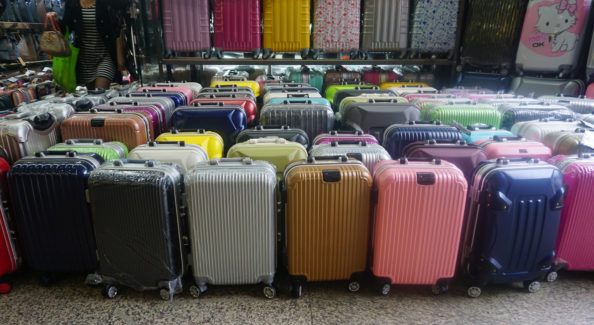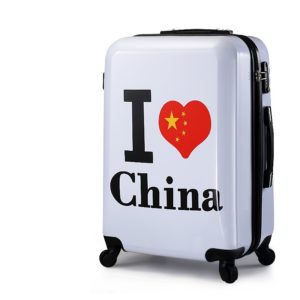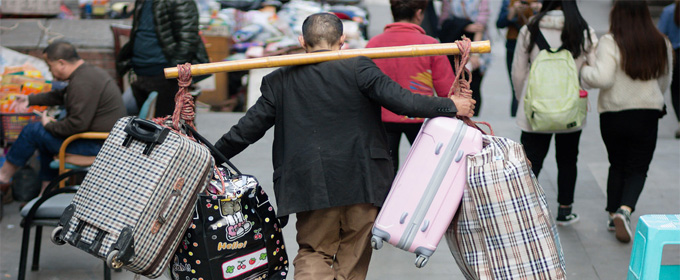Luggage Industry in China: Transformation and Improvement
Luggage Industry in China: Overview
The luggage industry in China is rapidly developing. But unlike most high-growth industries in China, the luggage industry also faces many barriers to further growth.
- Overview of the luggage industry in China
China is now the largest manufacturer of leather goods in the world. China sells 500 billion RMB worth of leather goods every year, and China has recently become the top luggage manufacturing country in the world. China now exports 70%-80% of all sold luggage, worldwide. The luggage industry in China hit a rough year in 2014, and the government is looking for reforms for the industry in the future.
- Characteristics of Chinese luggage market
Luggage Industry in China: Export giant
As mentioned above, China is a worldwide supplier of luggage. According to Chinese customs, exports reached 27.3 billion RMB during the worst period of 2014, and the market quickly recovered with exports growing 2.96% in the first quarter of 2015. Chinese companies manufacture leather at costs lower than many countries, and the labor-concentrated production model meets most of the worldwide demand. Advanced leather processing technology and low costs make China a prime supplier for premium luggage, and Chinese-made premium luggage has become popular in the international market.
Unbalanced luggage market distribution
Although China is the largest luggage manufacturer and exporter in the world, local companies do not dominate China’s domestic market for luggage. Seven of the top ten luggage brands are foreign companies. Chinese also prefer to purchase high-end luggage such as LV. Researchers also project that by 2020 Chinese travelers will make 6.8 billion trips inside China and 200 million trips internationally. The rapidly growing number of Chinese tourists will strengthen the domestic demand for luggage, especially draw-bar luggage. A developing luggage sector may be an opportunity for local companies to reposition their brands and grow their brand power over time.
Strategies facing future transformation

However, local brands still face problems including low-quality products, poorly designed products, and weak brand power. All of these factors give foreign brands an advantage. In addition, many local brands cannot find solid distribution channels and find it difficult to forge effective marketing strategies. Both of these factors radically decrease the profitability of local brands. Chinese producers of luggage are at a greater disadvantage as international inspection requirements becoming stricter. Also, since consumers prefer premium brands, local Chinese manufacturers often cannot satisfy the quality needs of consumers. This cuts off significant regions of the market from Chinese producers. Local Chinese governments are adopting new strategies to improve the current market situation. Shanghai will hold a “Shanghai Bag Fair” in October of this year. Organizers expect to attract over 300 international brands for a luggage fashion show. The bag fair will focus on the transformation of local Chinese brands over time. The Shanghai government hopes that the expo will help Chinese brands to explore innovative new business practices to become more competitive in the worldwide marketplace.
Luggage distribution channels are also transforming. JD.com, a leader among Chinese e-commerce platforms, is cooperating with Samsonite, the top luggage brand, to build an online luggage purchasing platform. JD.com and Samsonite seek to become the leader of luggage fashion nationwide. In October 2016, JD.com will also hold an online luggage fair in order to show off little-known brands that nonetheless sell quality products. It is unclear how successful JD.com’s and the Shanghai government’s efforts will be. Despite strong growth, the Chinese luggage industry is not as healthy as it appears on the surface. Local brands face difficulties selling in the domestic market, and the domestic industry must adapt to the needs of worldwide consumers.
Despite strong growth, the Chinese luggage industry is not as healthy as it appears on the surface. Local brands face difficulties selling in the domestic market, and the domestic industry must adapt to the needs of worldwide consumers.
Stay Update! Follow Daxue on Twitter:
Affordable #luxury Gaining Popularity in #China. What will happen to the luxury market?https://t.co/R6g1rYGuCr pic.twitter.com/UDB5wKz4JQ
— Daxue Consulting (@DaxueConsulting) June 5, 2016















